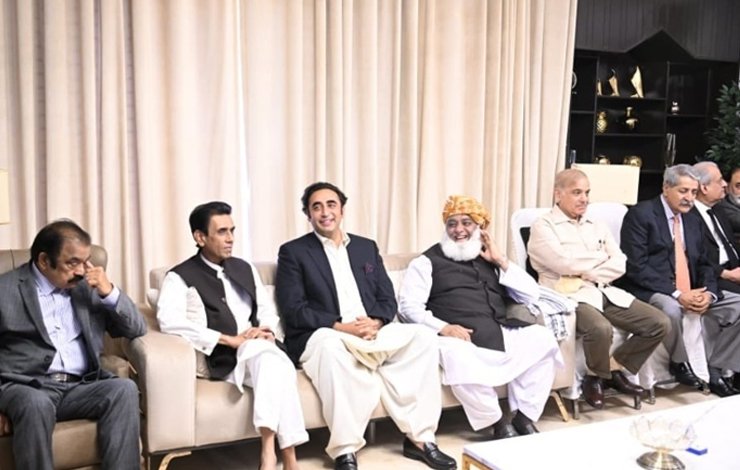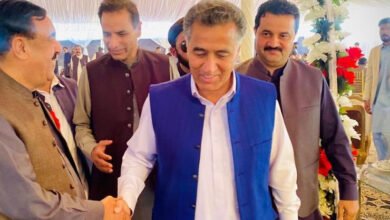Coalition govt in deep trouble after IMF conditions, election calls
The coalition government led by PML-N fell in deep trouble after receiving IMF conditions and election calls from the opposition.

ISLAMABAD: The coalition government led by Pakistan Muslim League Nawaz (PML-N) has fallen into deep trouble after receiving the International Monetary Fund (IMF) conditions for another tranche of $3 billion loan and on the other hand, receiving election calls from the opposition.
The International Monetary Fund (IMF) has set a condition to continue the loan program for Pakistan after the hike in the rates of petroleum products and electricity, whereas, Finance Minister Miftah Ismail blamed the previous government of Pakistan Tehreek-e-Insaf (PTI) for violating the promises made to the IMF by giving fuel subsidies.
The IMF sets a difficult condition for Pakistan to receive another tranche of loan if the government agrees to raise petrol and electricity prices.
Talks between Pakistan and IMF were held in Doha, Qatar. The IMF has refused to release the next tranche of the loan without raising the price of petroleum products.
The IMF has agreed to all the demands of Pakistan and backed the Pakistani government’s action plan to provide relief, especially to the poverty-stricken nationals.
Sources said that the IMF loan’s tranche will not be released without an increase in the price of petroleum products.
The Pakistani delegation will respond to the IMF after talks with Prime Minister Shehbaz Sharif. In this regard, the statement of the IMF Mission Chief for Pakistan has been issued.
Fresh election’s calls
On the other hand, Pakistan Tehreek-e-Insaf (PTI) Chairman Imran Khan has announced to return Islamabad for another protest if the coalition government fails to announce the election date in June within six days.
Imran Khan announced an end to the sit-in and gave a six-day ultimatum to the government for fresh elections date and the assembly’s dissolution.
The fresh elections will cost nearly Rs47.4 billion as for the security purpose, the polls’ cost is calculated at Rs15 billion, printing of ballot paper to cost Rs4.3 billion, electronic voting to cost Rs5.6 billion, Punjab election to cost Rs9.5 billion, Sindh election to cost Rs3.65 billion, Khyber Pakhtunkhwa (KP) election to cost Rs3.95 billion and Balochistan election to cost Rs1.1 billion.
News360 sources said that the PTI chairman announced to end of the sit-in on the assurance of the establishment as it was holding talks between the government and the PTI.
Sources added that even before March 26, the establishment had asked Imran Khan to dissolve the assembly and asked the opposition to withdraw its no-confidence motion.
Sources said that Imran Khan and the opposition refused to accept the mediation of the establishment because neither Imran Khan was ready to dissolve the assembly nor the opposition was ready to withdraw its no-confidence motion.
Analysts said that the coalition government has fallen into deep trouble after realising the political and economic challenges of the country. They said that the PML-N government will face a major dent on the political front if it agrees to hike petroleum products and electricity prices.
In the second case, if the PML-N government chooses to organise fresh elections, it will cost Rs47.4 billion which would be a heavy financial burden on the national exchequer.



